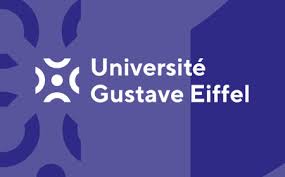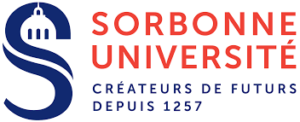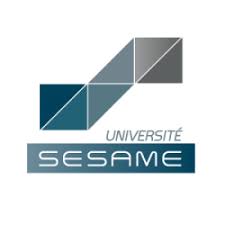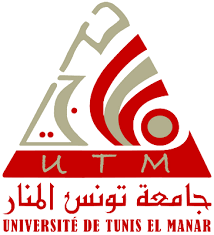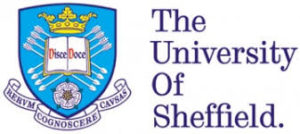Keynote #1
Title: Cloud – Fog Computing: Resource Allocation and Scheduling Challenges
Abstract:
Cloud computing has been widely used in research, industry, business, etc., due to its virtually unlimited processing and storage capabilities. Resource allocation and application scheduling play a vital role in cloud computing.
Due to the growing increase in number of Internet of Things (IoT) applications, fog computing has appeared as a computing model aiming to alleviate problems in cloud computing related to network congestion and latency of services. Fog is an intermediate tier between users and cloud resources, with limited processing capacity. However, most of the IoT applications are real-time having timing constraints as main concern. Therefore, appropriate management of real-time applications is required for effective use of cloud and fog resources.
The motivation of this keynote is to present novel techniques to address challenges in resource allocation and scheduling in cloud and fog computing architectures and to provide future research directions in the areas of cloud and fog computing.
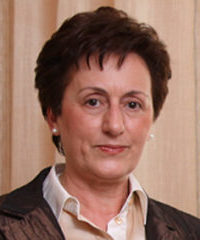
Helen Karatza
(Professor Emeritus, University of Thessaloniki, Greece)
Bio:
Helen Karatza is a Professor Emeritus in the Department of Informatics at the Aristotle University of Thessaloniki, Greece. Dr. Karatza’s research interests include Cloud and Fog Computing, Energy Efficiency, Resource Allocation and Scheduling and Real-time Distributed Systems.
Dr. Karatza has authored or co-authored over 230 technical papers and book chapters including five papers that earned best paper awards at international conferences. She is senior member of IEEE, ACM and SCS, and she served as an elected member of the Board of Directors at Large of the Society for Modeling and Simulation International. She served as Chair and Keynote Speaker in International Conferences.
Dr. Karatza is the Editor-in-Chief of the Elsevier Journal “Simulation Modeling Practice and Theory”. She was Editor-in-Chief of “Simulation Transactions of The Society for Modeling and Simulation International”, Associate Editor of “ACM Transactions on Modeling and Computer Simulation” and Senior Associate Editor of the “Journal of Systems and Software” of Elsevier. She served as Guest Editor of Special Issues in International Journals. More info about her activities/publications can be found in http://agent.csd.auth.gr/~karatza/
Keynote #2
Title: Mobile Crowd Sensing (MCS) – a first step towards building collective intelligence
Abstract:
In this presentation, we will focus on the discussion of the concept of “crowd sensing”, as an approach to collect data from embedded sensors in smartphones. Its positioning as a first, inexpensive, step for the building of a collective intelligence makes it a tool that is more and more popular today. This emergent paradigm comes with various applications, most of which related to Smart City processes. However, many challenges arise given users involvement in the data collection process. In this context, we will try throughout this presentation to discuss collaborative sensing schemes which tackle the following four main questions: How to assign sensing tasks to maximize data quality with energy-awareness? How to minimize the processing time of sensing tasks? How to motivate users to dedicate part of their resources to the crowdsensing process? and How to protect participants privacy and not impact data utility when reporting collected sensory data?

Yacine Ghamri-Doudane
(La Rochelle University, France)
Bio:
Yacine Ghamri-Doudane is currently Full Professor at La Rochelle University in France, and the director of its Laboratory of Informatics, Image and Interaction (L3i). Yacine received an engineering degree in computer science from the National Institute of Computer Science (INI), Algiers, Algeria, in 1998, an M.S. degree in signal, image and speech processing from the National Institute of Applied Sciences (INSA), Lyon, France, in 1999, a Ph.D. degree in Computer Science from University Pierre & Marie Curie, Paris 6, France, in 2003, and a Habilitation to Supervise Research (HDR) in Computer Science from Université Paris-Est, in 2010. His current research interests lays in the area of wireless networking and mobile computing with a current emphasis on topics related to the Internet of Things (IoT), Connected Vehicles, 5G and beyond (including Edge/Fog Computing) as well as Digital Trust. As part of his professional activities linked to the computer networking research community, Yacine also acted as the Chair the IEEE Communications Society (ComSoc) Technical Committee on Information Infrastructure & Networking (TCIIN – previously TCII) from January 2010 till December 2013 and also chaired the IEEE ComSoc Humanitarian Communications Technologies Ad hoc Committee (HCTC) from January 2012 till December 2015. He was part of the IEEE Smart Cities Initiative’s Steering Committee from September 2013 to August 2017, where he chaired the « Core Cities » Selection Subcommittee in 2014 and 2015.More details available here: http://goo.gl/6wnUvJ
Keynote #3
Title: AI-Enabled Wireless Networks: A Bridge from 5G to 6G
Abstract:
Future wireless networks are expected to support a multitude of services demanded by Enhanced Mobile Broadband (eMBB), Ultra-Reliable and Low-latency Communications (uRLLC), and massive Machine Type Communications (mMTC) users. Heterogeneous devices with different quality of service (QoS) demands will require intelligent and flexible allocation of network resources in response to network dynamics. For instance, a highly reliable and low-latency network is needed to enable rapid transfer of messages between connected autonomous vehicles. At the same time, the same physical infrastructure is expected to serve users with high-quality video demand or even mobile Augmented/Virtual Reality entertainment applications. Next-generation wireless networks are expected to accommodate such diverse use cases. In addition, resource efficiency, reliability, and robustness are becoming more stringent for 5G and beyond networks. To meet this, future wireless networks must incorporate a paradigm shift in network resource optimization, in which efficient and intelligent resource management techniques are employed. Artificial intelligence, or more specifically machine learning algorithms stand as promising tools to intelligently manage the networks such that network efficiency, reliability, robustness goals are achieved and quality of service demands are satisfied. The opportunities that arise from learning the environment parameters under varying behavior of the wireless channel, positions AI-enabled 5G and 6G, superior to preceding generations of wireless networks. In this keynote, we will provide an overview of the state-of-art in machine learning algorithms and their applications to wireless networks, in addition to their challenges and the open issues in terms of their applicability to various functions of future wireless networks.
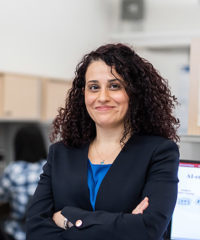
Melike Erol-Kantarci
(Ottawa University, Canada)
Bio:
Melike Erol-Kantarci is Canada Research Chair in AI-enabled Next-Generation Wireless Networks and Associate Professor at the School of Electrical Engineering and Computer Science at the University of Ottawa. She is the founding director of the Networked Systems and Communications Research (NETCORE) laboratory. She has over 140 peer-reviewed publications which have been cited over 5300 times and she has an h-index of 37. Recently, she was selected for the 2019 list of “N2Women: Stars in Computer Networking and Communications”. She has received several awards and best paper recognitions in her career. Dr. Erol-Kantarci is the co-editor of three books on smart grids and smart cities. She has delivered 50+ keynotes, plenary talks, tutorials and panels around the globe. She is a Specialty Chief Editor for the “Frontiers in Communications and Networking” journal. She is on the editorial board of the IEEE Transactions on Cognitive Communications and Networking, IEEE Internet of Things Journal, IEEE Communications Letters, IEEE Vehicular Technology Magazine and IEEE Access. She has acted as the general chair and technical program chair for many international conferences and workshops. She is a steering committee member for the IEEE Sustainable ICT Initiative. Her main research interests are AI-enabled wireless networks, 5G and 6G wireless communications, smart grid, electric vehicles, Internet of things and wireless sensor networks. She is a senior member of the IEEE.
Keynote #4
Title: Small data transmission in 5G New Radio (NR) systems: Applications, design and performance evaluation
Abstract:
First, I will provide an overview of the fundamentals of the 5th Generation (5G) Radio Resource Control (RRC) protocol, responsible for fundamental functions in the user equipment (UE) such as state handling (e.g. Idle, Connected, Inactive states), Control Plane procedures (e.g. state transitions), measurement configuration and reporting, mobility, etc.
Then, I will describe the design of Small Data Transmission (SDT) in 5G NR, a new feature recently addressed by the 3rd Generation Partnership Project (3GPP) specification Release 17 which enables UEs in RRC Inactive state to transmit infrequent and small data without requiring an RRC state transition.
Finally, I will conclude with performance results that show significant gains in latency reduction and energy efficiency which are critical requirements for many 5G use cases.

Ahlem KHLASS
(Nokia Bell Labs, France)
Bio:
She received the Engineering Degree in 2010 and the Master Degree in telecommunications in 2011, both from the higher School of Communication of Tunis, Tunisia (SUP’COM). She obtained her PhD from Telecom Paris Tech and Orange Labs in 2015. She joined Nokia Bell Labs FRANCE in 2017 and has since been working as a researcher engineer in Standardization and Research LAB. Her focus areas have been 5G NR radio network architecture and protocols, in particular the control plane design and RRC protocol.






